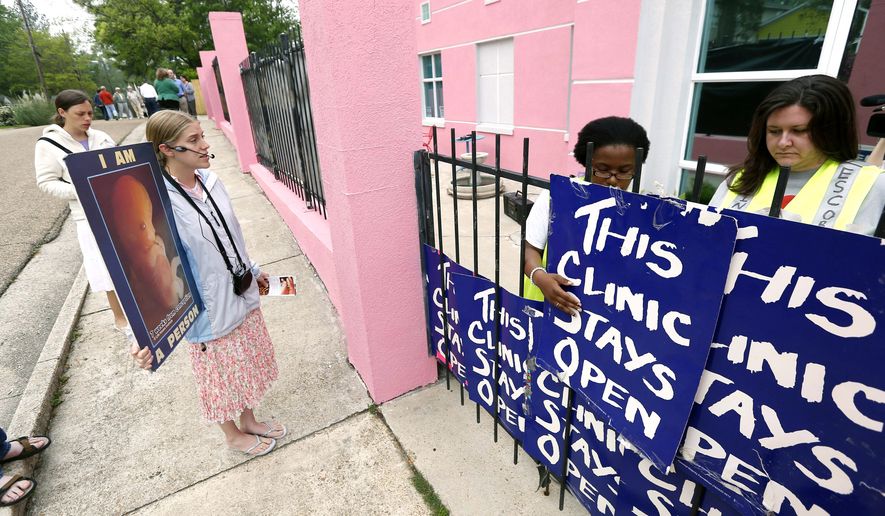A North Carolina law that would have required doctors to show and describe a fetal ultrasound image to a pregnant woman before she has an abortion is now permanently blocked.
On Monday, the Supreme Court declined to review of a 4th U.S. Circuit Court of Appeals ruling that found the law unconstitutional. Justice Antonin Scalia was the only member to indicate he wanted to accept the case, Walker-McGill v. Stuart.
The Center for Reproductive Rights, Planned Parenthood and the American Civil Liberties Union said they were pleased with the turn of events.
The North Carolina law, enacted over the veto of then-Gov. Beverly Perdue in 2011, would have compelled abortion providers to display and describe the fetal ultrasound image to the mother.
Although the law said the woman could avert her eyes and ignore the doctor’s explanation, it forced doctors to become “the mouthpiece of the state,” the appellate court said.
It also made no exception for pregnancies involving rape, incest, serious health risks or severe fetal anomalies, the pro-choice groups said.
“Women in need of abortion care should be treated in a compassionate, medically appropriate way — not with cold-hearted approaches intended to interfere with the patient-physician relationship,” said Dr. Mark S. DeFrancesco, president of the American College of Obstetricians and Gynecologists.
North Carolina is among 23 states that passed a law dealing with pre-abortion ultrasounds, according to the Guttmacher Institute.
Ilyse Hogue, president of NARAL Pro-Choice America, praised the Supreme Court’s decision to decline the case.
The North Carolina ultrasound law was “medically unnecessary,” and would have trampled the rights of doctors and attempted to shame women, said Ms. Hogue. Today “is a good day for not only women, but for doctors and the belief that they should have free speech when discussing health care choices with their patients,” she said.
Steven H. Aden, an attorney with pro-life Alliance Defending Freedom, said it was unfortunate that North Carolina judges ruled against the state law, H.B. 854.
Women should be fully informed before a procedure like abortion, including what the procedure is and what it does, said Mr. Aden. Abortion providers already use ultrasound technology, he said, but they “don’t want to use it in a way that jeopardizes their profits and shows women the truth.”
Separately, the Supreme Court has yet to take action on an abortion case in Mississippi.
Mississippi state officials are appealing a ruling by a three-judge panel at the 5th U.S. Circuit Court of Appeals that blocked a state law requiring abortion clinics to have admitting privileges at a local hospital. The ruling has effectively permitted the state’s lone clinic, Jackson Women’s Health Organization, to stay open.
Meanwhile, another three-judge panel of the New Orleans-based 5th Circuit Court recently upheld much of a Texas abortion-regulation law, which also set admitting-privilege requirements as well as ensuring abortion clinics meet ambulatory surgical center standards.
Pro-choice groups said they will ask the Supreme Court to review that decision on behalf of a number of clinics and abortion providers.
The Texas law is scheduled to go into effect July 1.
According to the pro-choice Fund Texas Choice, cities with abortion clinics likely to be able to comply with the law include Austin, San Antonio, Dallas, Fort Worth, Houston and McAllen. But these advocates say that having compliant clinics clustered in just those five metropolitan areas would leave much of the vast state without an abortion clinic nearby.
• Cheryl Wetzstein can be reached at cwetzstein@washingtontimes.com.




Please read our comment policy before commenting.